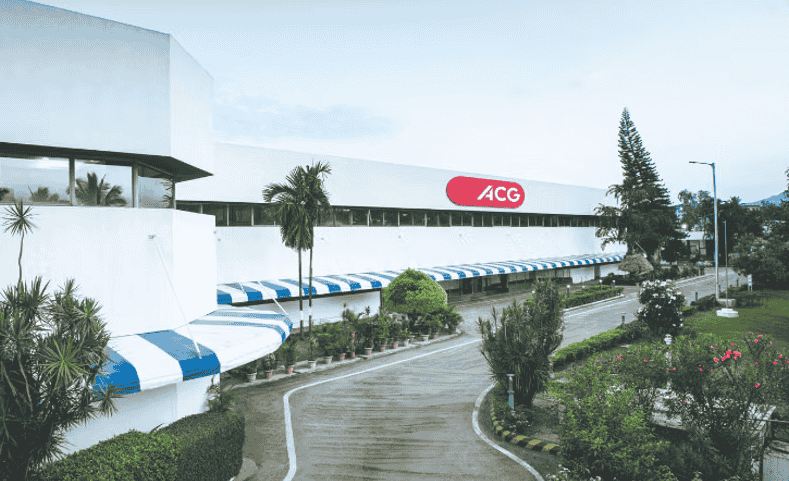Ingredient Processing: The Way Forward for Nutraceutical Products

This shift in focus has given rise to the dynamic and rapidly growing nutraceuticals sector. Nutraceuticals are products derived from natural food sources that offer health benefits beyond basic nutrition. They include supplements, functional foods, and beverages designed to improve overall health, prevent chronic diseases, and enhance performance.
As this segment continues to expand, nutraceuticals are becoming a crucial part of modern health and wellness, empowering individuals to take control of their health with targeted, natural solutions. Whether for supplements designed for immunity, heart health or cognitive function, consumers are increasingly seeking out products that align with their unique wellness goals. As such, the global nutraceutical market has seen remarkable growth, valued at $383.69 billion in 2022 and expected to surge to $868.38 billion by 2031. This growth reflects a strong compound annual growth rate of 9.50% from 2024 to 2031.
Furthermore, advancements in nutraceutical formulations have led to the development of more innovative and effective products. These advanced products are designed to meet the growing demand for natural, scientifically backed solutions, which promote long-term health and vitality. Innovations in nutraceuticals have the potential to significantly impact the industry, but success hinges on manufacturers' ability to incorporate high-quality, stable and effective ingredients into products. To accomplish this, manufacturers must meticulously select ingredients and fine-tune processing techniques.
The Need for Careful Ingredient Selection
One of the fastest-growing areas within the nutraceutical market is functional foods, which are enhanced with additional nutrients or bioactive ingredients that offer more than basic nutrition. Functional foods, such as those fortified with vitamins, minerals, probiotics, prebiotics, fiber and Omega-3 fatty acids are gaining popularity with consumers seeking to improve their overall health and well-being through better nutrition.
Alongside functional foods, dietary supplements are also experiencing rapid growth within the nutraceutical sector. These supplements are carefully formulated to address specific health concerns, such as boosting immune function, supporting digestion or enhancing cognitive performance. Whether in the form of capsules, powders, or liquids, these supplements provide a convenient way for consumers to fill nutritional gaps and achieve specific health goals, further driving the growth of the market.
However, the success of both segments hinges on the careful selection of active ingredients and processing methods. The effectiveness and safety of these products are directly impacted by the quality of the components used and the formulation strategies applied. Manufacturers must meticulously select ingredients and fine-tune processing techniques in order to maintain the desirability and efficacy of the final product.
To stay aligned with current trends, manufacturers are adopting advanced techniques such as coating, fluid bed processing, encapsulation, pelletization, spray drying and freeze-drying. This drive for innovation is closely linked to progress in nutraceutical ingredient processing technologies, which have become valuable assets for manufacturers seeking to enhance product quality and effectiveness.
Transforming Ingredients with Advanced Processing
Ingredient processing is one of the promising and cost effective approaches helping to meet current market demands. It is a method of conversion of raw materials into value-added products that can be used as a starting product for development or as an end product. The primary objective of this process is to produce high-quality, stable and effective ingredients that can be incorporated into products to promote health and wellness.
The process involves state-of-the-art techniques such as encapsulation, coating, granulation and mixing, which are used to strategically modify the physical and chemical properties of active ingredients. This transformation optimizes their functionality, boosting both the nutritional value and the overall benefits of nutraceutical products. The result is a higher standard of excellence and performance to help meet stringent industry demands.
One of the key advantages of ingredient processing is its flexibility as a tool to customize products based on specific customer preferences and formulation needs. Whether enhancing product stability, improving bioavailability, or masking undesirable tastes or odors, processing technologies offer the ability to tailor products for various health and dietary applications. From aiding the manufacturing process to enabling product modifications, ingredient processing has become a vital tool in the development of high-quality nutraceuticals.
Addressing Manufacturing Challenges
One significant challenge in manufacturing, particularly when handling powdered ingredients, is the issue of dusting. This not only does it create a less efficient production process but it also leads to material wastage. Ingredient processing technology addresses this by transforming powders into microbeadlets or minibeadlets, improving the flowability of the material, reducing dust and minimizing wastage. This enhancement not only streamlines production but also ensures a more precise and consistent formulation.
Another major challenge in the nutraceutical industry is the delivery of unstable liquid ingredients, extracts and oleoresins — many of which are botanically derived and unsuitable for direct use after extraction. Advanced ingredient processing technologies offer a practical solution by converting these unstable or incompatible liquid actives into stable solid forms, such as powders, pellets or beadlets. This transformation simplifies handling and delivery, while also enhancing the product’s effectiveness by ensuring better stability, shelf life and ease of use.
Natural raw materials are often unstable and can degrade over time. Techniques like coating and encapsulation help stabilize these active compounds, extending their shelf life and preserving their potency throughout the product’s lifespan. Additionally, processes such as microencapsulation, nanoencapsulation and emulsification enhance the bioavailability of ingredients that are otherwise poorly absorbed, improving their absorption and effectiveness. Some nutraceutical ingredients also have strong tastes or odors that can negatively impact the consumer experience. Processing methods can mask these unwanted characteristics, making the final product more pleasant and user-friendly.
Moreover, ingredient processing offers the added advantage of customizing formulations. Technologies such as blending and extrusion enable the creation of tailored products that meet specific formulation needs. By optimizing the delivery of active ingredients, these methods enhance the overall performance of products, ensuring that ingredients are utilized in a way that maximizes their impact.
This approach is particularly valuable in the fortification process, where additional nutrients are integrated into products, for example: enriching protein powders with B vitamins or incorporating calcium into multivitamin blends, iodine in salt or iron in wheat and maize flour etc. This process significantly boosts the nutritional value of both nutraceuticals and food products, making them more effective in meeting dietary needs and improving public health. Also, techniques like beadlet formation further enhance this process by improving ingredient stability and controlling the release of active compounds. For instance, in Omega-3 supplements, beadlets can increase bioavailability, ensuring the body absorbs more of the active ingredient.
The Evolving Nutraceutical Landscape
Innovations in nutraceuticals have the potential to significantly impact the industry, and ingredient processing plays a crucial role in this evolution. This sustainable and eco-friendly approach to raw material and final product handling is becoming increasingly important in the formulation of many products.
Advancements in ingredient processing technologies are driving the development of innovative products that stand out in the market. Companies that invest in these technologies are better positioned to offer unique and high-quality products, attracting customers and maintaining a competitive edge. By leveraging these advanced technologies, the nutraceutical industry can produce products that not only meet specific health needs and consumer preferences but also satisfy the formulation need. Products formulated using these methods often achieve higher levels of purity, safety and efficacy, as required by regulatory bodies enhancing the overall quality and credibility of the brand.
Ingredient processing is not just a functional necessity — it is a strategic asset for creating nutraceutical products that stand out in the market. By investing in advanced processing technologies, manufacturers can deliver safe, effective and tailored products that satisfy both regulatory standards and consumer expectations, thereby strengthening their brand and competitive edge.
Author Details
Manali Dalvi, Lead, Formulation R&D, ACG
Manali Dalvi’s primary responsibilities include writing and publishing scientific research articles, developing segmented solutions and technical content as part of thought leadership programs. She is also involved in all the industry and institutional related collaborations and research activities. Dalvi received a Master’s in Pharmacy from Savitribai Phule Pune University.
Jnanadeva Bhat, Ph.D., Vice President and Head, Formulation R&D, ACG
Jnanadeva Bhat is head of formulation R&D (Pharma & Nutra) at ACG Group. Bhat has been associated with the pharmaceutical industry for more than two and a half decades. As a product formulator, he has worked on various dosage forms that include tablets, soft gelatin and hard capsules, injectables and lyophilized formulations. At ACG, he heads the formulation R&D lab where he primarily leads new product development projects and customer interface.
Surya Singh, Ph.D., Senior Manager Product Development (Nutra), ACG
Surya Singh is part is a key member of Vantage Nutrition LLP, where he spearheads formulation development for the nutraceutical division. With over 15 years of experience in capsule formulation, Dr. Singh specializes in liquid-fi ll and pellet-fi ll technologies, bringing expertise in creating innovative, high-value nutraceutical products. His leadership drives the development of cutting-edge solutions that meet the evolving needs of the market, positioning his team at the forefront of industry advancements.
Publication Details
This article appeared in Tablets and Capsules Magazine:
Vol. 23, No. 1
January/February 2025
Pages: 13-15

 Go Back
Go Back


